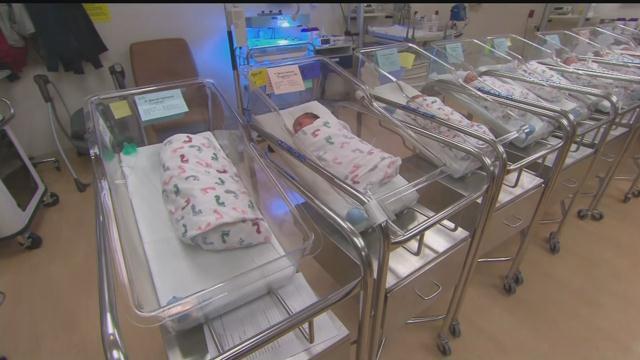New Fertility Screening Test Launched
Posted: Nov 2, 2015 5:23 PM CDT | Updated: Nov 2, 2015 6:29 PM CDT

A infertility risk screening program for Premature Ovarian Aging in young women launched Monday, according to a press release.
What's My Fertility is now available online in California, Connecticut, Florida, Illinois, Massachusetts, New Jersey, New York, Pennsylvania, Texas and Virginia.
A national rollout, both online and in OB-GYN offices, will follow.
POA is a condition where women's ovaries age faster than normal and they lose eggs at an accelerated pace; the condition impacts approximately one in ten women, independent of race and ethnic background. POA is mostly diagnosed at advanced female ages when treatment choices are limited and often costly.
"After treating infertility in women for decades and hearing them tell us time and time again that they wished they had known of the risk of POA so that they could have planned for a family sooner, we were determined to find a better way to proactively identify POA in young women," said Norbert Gleicher, MD, FACOG, FACS, one of the founders of What's My Fertility, Medical Director and Chief Scientist of The Center for Human Reproduction (CHR). "POA screening will empower women with the knowledge they need to make informed decisions earlier in life and will help them avoid the emotional and hefty costs of later infertility treatments."
The CDC has reported that the first birth rates for women 35–39 generally increased from the mid-1970s to 2012 and that the average age of women conceiving their first child is now 26, a 3.3% increase from the 1980's.
In addition, the CDC has also reported that over 1.5 million women in the U.S. experience infertility.
These women require limited and costly treatments, like in vitro fertilization (IVF), which are often not covered by insurance and can cost up to $15,000 for one cycle in the U.S.
Women between the ages of 18 and 35 can now take the What's My Fertility screenin. That costs $98 plus lab costs.
The patented screening paradigm determines risks for POA based on a brief historical questionnaire relating to the patient's own family history, and three blood tests, including a genetic test that was recently reported by CHR investigators to be predictive of POA. Patient analyses are completed by highly regarded infertility experts, who initiate a written report which defines patients as likely no risk; likely increased risk; and already affected by POA.
The written report also includes specific recommendations for patients. Women who have an increased risk are advised to enter a follow up testing schedule until risk is either confirmed or refuted. Women with an early diagnosis of POA have expanded options for conceiving naturally: they can advance their pregnancy plans and likely conceive without medical help, or they can preserve their fertility by freezing eggs at a young age.
To learn more about the What's My Fertility or to take the screening, visit: www.whatsmyfertility.com
